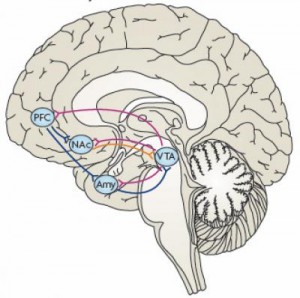 Aging individuals who have mental and emotional resilience—and who do not suffer from clinical depression—report high rates of “successful aging” even in the face of worsening physical and/or cognitive functioning.
Aging individuals who have mental and emotional resilience—and who do not suffer from clinical depression—report high rates of “successful aging” even in the face of worsening physical and/or cognitive functioning.
The finding from a survey of older adults published online today in the American Journal of Psychiatry upends the stereotype of old age as a uniformly unhappy experience. And—even more surprising—the older the adult the more likely he or she was to report a high degree of successful aging. In fact, older age was associated with a higher rating of successful aging, despite worsening physical and cognitive functioning.
“It was clear to us that, even in the midst of physical or cognitive decline, individuals in our study reported feeling that their well-being had improved with age,” lead author and APA President Dilip Jeste, M.D., told Psychiatric News. “This counterintuitive increase in well-being with aging persisted even after accounting for variables like income, education, and marriage.”
In the Successful Aging Evaluation (SAGE) study, Jeste and colleagues surveyed 1,006 community-dwelling adults aged 50 to 99 in San Diego County, with an oversample of people over age 80. The adults answered a 25-minute telephone interview followed by a comprehensive mail-in survey of physical, cognitive, and psychological domains, including positive psychological traits and self-rated successful aging, scaled from 1 (lowest) to 10 (highest). The average self-rating of successful aging was 8.2, with older individuals in the cohort reporting higher rates of successful aging despite worsening physical and cognitive functioning. People with poor physical health but high resilience scores had self-ratings of successful aging similar to those of physically healthy people with low resilience. Likewise, people with poor physical functioning but no or minimal depression had scores for successful aging comparable to those of physically healthy people with moderate to severe depression.
Jeste said the message for clinicians is that an optimistic approach to the care of seniors may help reduce societal ageism. “There is considerable discussion in public forums about the financial drain on society due to rising costs of health care for older adults…. But, successfully aging older adults can be a great resource for younger generations,” he said. “Perfect physical health is neither necessary nor sufficient” for successful aging, Jeste said. “There is potential for enhancing successful aging by fostering resilience and treating or preventing depression.”
ᔥAmerican Psychiatric Association“Association Between Older Age and More Successful Aging: Critical Role of Resilience and Depression is here. For more information on this topic go here.


